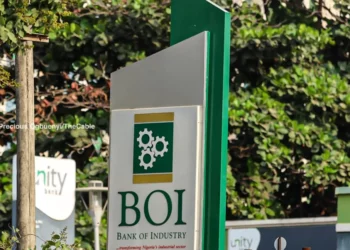The Bank of Industry (BoI) has announced the disbursement of N22.89 billion to 29 manufacturers, offering a lifeline to an industry grappling with poor sales and rising production costs.
BoI managing director, Dr. Olasupo Olusi, disclosed this during the bank’s first interactive session with the Organised Private Sector (OPS) in Abuja on Monday. He explained that the initiative is part of a N75 billion manufacturing sector intervention fund, with an additional 20 projects worth N6.3 billion currently at various stages of disbursement.
The session aimed to foster dialogue on creating a thriving industrial sector while boosting the development of Small and Medium Enterprises (SMEs). Dr. Olusi emphasised the need for stronger collaboration between SMEs and the government to drive growth and address systemic challenges.
Highlighting the bank’s commitment, he said, “Recently, we signed a Memorandum of Understanding (MoU) with your esteemed associations. This agreement underscores a simple truth—that we cannot transform Nigeria’s industrial landscape alone. Sustainable economic growth must be fueled by collaboration, innovation, and a shared resolve to address systemic challenges.”
Dr. Olusi added that the BoI’s role extends beyond financing, aiming also to create an enabling environment for businesses. This includes tackling infrastructure deficits, regulatory bottlenecks, and market access limitations.
He also stressed the importance of collaborative innovation to introduce technology, sustainability, and skills development as pillars for SME growth. “We are concerned about your most pressing challenges and how we can align our programmes with your needs to accelerate growth,” he said.
The challenges faced by Nigeria’s manufacturing sector are significant. According to the Manufacturing Association of Nigeria (MAN), the industry struggled with unsold inventories worth N350 billion in 2023, which surged to N1.24 trillion in the first half of 2024.
Additionally, the sector’s contribution to the GDP declined from 16.04 per cent in Q4 2023 to 12.68 per cent in Q2 2024, per the National Bureau of Statistics (NBS). MAN attributes these setbacks to exchange rate volatility and rising inflation, which forced over 767 manufacturing companies to shut down last year.
In response to the sector’s woes, the federal government recently established an Industrial Revolution workgroup to rejuvenate the manufacturing industry.
The African Development Bank estimates that Nigerian SMEs face a funding gap of approximately $160 billion, underscoring the urgent need for interventions like the BoI’s disbursements.





